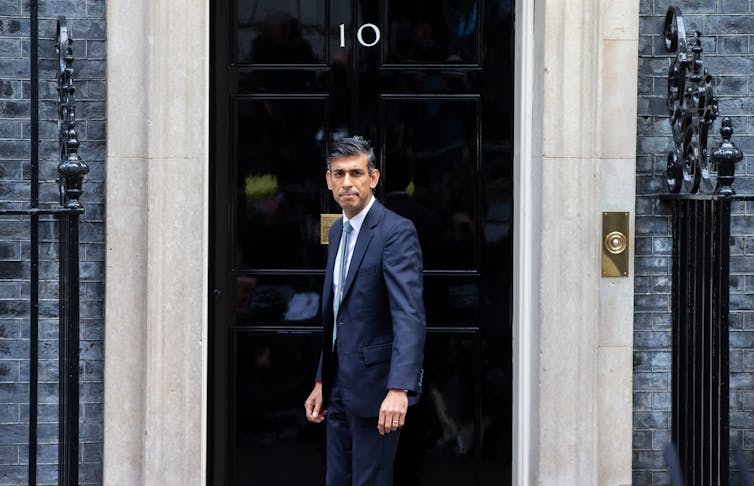accounting professional on what it means when HMRC fines you for being ‘careless’

Though the information that Tory get together chairman Nadhim Zahawi had paid a penalty for failing to file his taxes correctly first surfaced throughout his brief tenure as chancellor from July to September 2022, his previous tax affairs have come beneath scrutiny once more extra just lately.
In July 2022, the Unbiased reported that Zahawi’s tax affairs had been beneath investigation by HMRC. Extra just lately, the Solar reported that the ex-chancellor, now Tory get together chairman, had paid “a number of million” to “settle a dispute with HMRC” about whether or not he had used an offshore firm known as Balshore Investments to carry shares in YouGov. This the polling firm he co-founded with assist from his father in 2000 and retired from in 2010. Balshore is registered in Gibraltar and has been linked to Zahawi’s household, however Zahawi denies setting it up or utilizing it.
Though the precise particulars haven’t been made public but, Zahawi got here to a settlement with HMRC after it discovered he was “careless” along with his tax return. HMRC defines this as “a failure to take affordable care in relation to your tax affairs”.
With regards to care and carelessness, HMRC’s inside handbook Compliance Handbook says:
Individuals do make errors. We don’t count on perfection. We’re merely in search of to ascertain whether or not the individual has taken the care and a spotlight that might be anticipated from an inexpensive individual taking affordable care in related circumstances, making an allowance for the flexibility and circumstances of the individual in query on the time the irregularity was submitted to HMRC.
The precept of carelessness is just like that of “negligent misrepresentation” in a legally binding contract. That is when an individual makes a false assertion that they imagine is true, however they don’t have affordable grounds for believing that it’s true.
Examples of carelessness cited by HMRC embrace haphazard report retaining, inadequate studying or understanding of HMRC pointers and, most related within the Zahawi case, carelessness on the a part of representatives employed by the taxpayer in query.
HMRC will take into account many elements when deciding what constitutes careless behaviour and the suitable degree of penalty when a self-assessment return is submitted. For instance:
- Was the tax problem one thing that the individual or enterprise could be anticipated to have affordable information of?
- What proof exists that they took the time and care to take a look at the steerage when making a judgement on their return?
- If an agent or tax consultant was appointed to help and full the return, did the taxpayer totally test the work, and advise and proper the place crucial?
- Importantly, did the individual make HMRC conscious of any errors or misdemeanors of their return in the event that they had been found later?
The severity of any penalty may be lowered if somebody is co-operative and confesses earlier than HMRC discovers an issue.
To settle the problem with HMRC, Zahawi paid the extra quantity owed, plus 30% of that quantity as a penalty – reportedly tens of millions. That is the utmost proportion that may be imposed on an individual for a scarcity of affordable care. HMRC maybe took the view that an individual in Zahawi’s place has ample assets and help to get his returns appropriate.
Extra severe offences, reminiscent of fraudulent misrepresentation – when an individual makes a press release that they know is just not true – can carry a penalty of as much as 100% of the tax due). These penalties imposed by HMRC are for circumstances of tax evasion, that’s when somebody has clearly under-declared a tax legal responsibility (intentionally or not).
Unbiased ethics investigation
So what now for Zahawi? No authorities desires any indication of careless monetary behaviour, a lot much less tax avoidance, hanging round any of its representatives. And so prime minister Rishi Sunak has tasked the unbiased ethics adviser Laurie Magnus to look into Zahawi’s latest interplay with HMRC.
Magnus might be on the lookout for any doable breaches of the Ministerial Code. This covers a variety of transgressions however among the many most related for this case are:
-
1.1: Ministers of the Crown are anticipated to keep up excessive requirements of behaviour and to behave in a approach that upholds the very best requirements of propriety
-
7.7: Ministers should scrupulously keep away from any hazard of an precise or perceived battle of curiosity between their Ministerial place and their personal monetary pursuits.
However it’s extra obscure what precisely Magnus can do. The federal government is unlikely to go over HMRC’s head and study the tax place and penalty intimately. So this leaves the problem of investigating what and when Zahawi has commented on the matter, and whether or not that features any potential inconsistencies or contradictions.

I T S/Shutterstock
Whether or not Magnus will take a look at Sunak’s personal involvement and the way a lot he knew (or didn’t know) about this matter at sure factors within the timeline is one other key query. And this additionally highlights the shortcomings of the ethics adviser function when trying into points reminiscent of tax discrepancies. The adviser can not independently launch their very own inquiries into ministerial issues however should await the prime minister to request any investigation.
Only one month after Magnus’s appointment, this ongoing story threatens to reveal the weaknesses within the authorities’s moral scrutiny, and extra importantly for Sunak, impacts his means to current a steady fashion of premiership following the financial turmoil of 2022.





